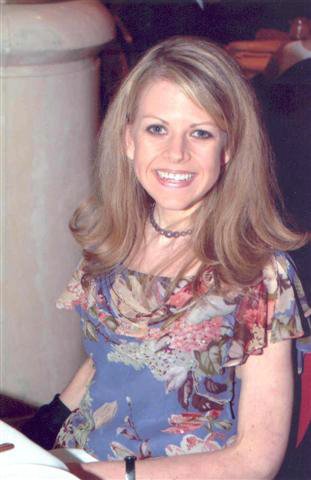Bye bye Michael . . . (Changes at the FCC)
It's official: Michael Powell is resigning from his position as head of the FCC. This comes as no surprise; speculation about his departure has been steady for quite a while now. What's not entirely clear, however, is what his departure (and his replacement) will mean. (There's all sorts of guessing going on out there about who will replace Powell-- but I really have any way of judging the accuracy of any of those musings.)
The most famous acts of the FCC during Powell's tenure have undoubtedly been the decisions regarding censorship, indecency, and fines. To the degree that he has any widespread name recognition, it probably comes from the battles with Howard Stern et al. (Not to downplay the seriousness of that issue, but his spars with Howard Stern were pure entertainment. If you never heard the on-air radio fight between them, you really should taken a list to the MP3.)
While I have found the moral panic around television "indecency" (or, worse yet, "profanity") quite frustrating, and while I am certainly no fan of Powell, I never really got the impression that this issue was his baby, so to speak. His part in the indecency crackdown seemed to me more to a response to caving under pressure than a crusade he was specifically invested in. Granted, this doesn't make it any better. Indeed, if his response seemed genuinely grounded in the idea that the broadcast airwaves are a public property and public trust, which therefore requires public oversight and regulation, I would have some sympathy. But instead he continually eschewed such a notion in the relentless drive to deregulate the broadcast media, to treat them as the private fiefdoms of corporate America, particularly around media ownership rules.
Powell's lasting, negative legacy will be the media ownership deregulation that he oversaw and extended and the ensuing consolidation and conglomeration that it engendered. The only bright spots that have occurred on this front during his reign have been exclusively in spite of rather than because of him-- i.e., in those important moments when his attempts at deregulation have failed or been stalled by the courts or Congress.
Will his successor be any better on this issue, I wonder?
On the one hand, Bush is hardly likely to nominate someone with a substantially different approach to issues of corporate control of the media, regulation, ownership, etc. (Not that this is really a red-state/blue-state issue. Indeed, it is Clinton who first appointed Powell to the FCC and it was under Clinton that the 1996 Telecommunications Act was passed in the first place. Sadly, I'm not sure that we'd be terribly better off in this area had we had a Kerry rather than a Bush inauguration this week.)
On the other hand, these will be the first confirmation hearings for this position since the surge of unprecedented activism around issues of media ownership and consolidation became so visible in recent years-- activism to which Congress at least briefly responded. So, maybe there is a little hope for at least some dialogue around this issue? However, I worry that the indecency issue will continue to overshadow things, supplanting the more fundamental issues of media control in the sorts of things that a nominee is grilled over, in terms of broadcast media.
Of course, while the indecency rulings and media ownership (de)regulations are probably Powell's most visible legacy, these are hardly the only important issues at stake in the FCC these days.
For one thing, there are a multitude of issues relating to my own research interests-- the digital television transition, the broadcast flag rules, new television technologies (will the new Commissioner share Powell's enthusiasm for TiVo, I wonder?) (But, I'm not quite ready to blog about these issues. Why is it that I'm so much more comfortable spouting off about the implications for the issues I know less about than the ones I actually study? Is this a good thing or a bad thing?)
In an essay in last month's Wired, Lawrence Lessig provocatively pointed out two areas of positive contributions from Powell: his commitment to experimenting with the wireless spectrum as a commons rather than as private property to be auctioned off, and a tendency toward supporting the idea of access neutrality to the internet.
Regardless, I'm not sorry to see him go. But in terms of what the next years will bring us from the FCC, I hope that in retrospect we won't have to see this as a "be careful what you wish for" moment.



0 Comments:
Post a Comment
<< Home